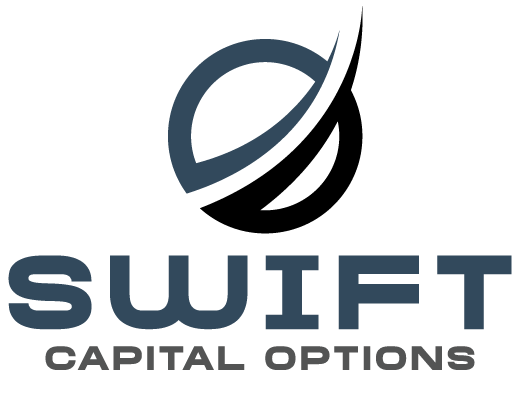Tax Implications of Refinancing: What Business Owners Need to Know


At Swift Capital Options, we understand that refinancing a business loan is more than just securing better terms—it's a financial decision with potential tax consequences. Navigating these tax implications is crucial for making informed decisions that benefit your business both financially and from a tax perspective. This comprehensive guide will explore the various tax considerations associated with refinancing business loans.
Understanding the Basics
Before diving into specific tax implications, it's important to understand that the tax treatment of refinancing can vary based on several factors:
- The type of loan being refinanced
- The terms of the new loan
- How the refinanced funds are used
- Your business structure (e.g., sole proprietorship, LLC, corporation)
Key Point: Always consult with a qualified tax professional for advice specific to your business situation.
Deductibility of Interest
One of the primary tax considerations in refinancing is how it affects the deductibility of interest payments.
General Rule:
Interest paid on business loans is typically tax-deductible as a business expense.
Refinancing Impact:
- If the refinanced loan is used for business purposes, the interest generally remains deductible.
- The amount of deductible interest may change if the refinancing alters your interest rate or loan balance.
Important Consideration: If part of the refinanced amount is used for personal purposes, that portion of the interest may not be deductible as a business expense.
Points and Loan Origination Fees
Refinancing often involves paying points or loan origination fees. The tax treatment of these costs can be complex.
For Term Loans:
- Points and origination fees are typically amortized over the life of the loan for tax purposes.
- You deduct a portion of these costs each year as interest expense.
For Lines of Credit:
- Points and fees may be deductible in the year paid if certain conditions are met.
Pro Tip: Keep detailed records of all refinancing costs to ensure accurate tax reporting.
Debt Cancellation Income
In some refinancing scenarios, part of the original loan may be forgiven. This can have significant tax implications.
Potential Impact:
- Forgiven debt is often treated as taxable income by the IRS.
- This can result in an unexpected tax liability in the year of refinancing.
Exceptions:
- Certain situations, such as insolvency or bankruptcy, may allow for exclusion of this income from taxation.
Critical Note: If your refinancing involves any debt forgiveness, consult with a tax professional to understand the potential tax consequences.
Changes in Depreciation Deductions
Refinancing can sometimes affect depreciation deductions, particularly if it involves property used as collateral.
Scenario:
- If refinancing results in a change to the basis of depreciable property, it could affect future depreciation deductions.
Consideration:
- This is more likely to be an issue with complex refinancing arrangements or those involving significant changes to loan terms.
Action Item: Review any potential impacts on depreciable assets with your accountant when refinancing.
Impact on Alternative Minimum Tax (AMT)
For businesses subject to the Alternative Minimum Tax, refinancing can have additional tax considerations.
Potential Effect:
- Changes in deductible interest or other refinancing-related deductions might impact AMT calculations.
Importance:
- This is particularly relevant for pass-through entities where business income affects the owner's personal tax situation.
Strategic Planning: Consider AMT implications when structuring your refinancing deal, especially for larger loans.
Timing Considerations
The timing of your refinancing can have tax implications, especially as it relates to fiscal year-end planning.
Year-End Strategies:
- Refinancing near the end of your fiscal year might allow you to deduct certain costs in the current tax year.
- However, it might also push significant deductions into the next tax year.
Long-Term View:
- Consider how refinancing timing aligns with your overall tax strategy and cash flow needs.
Tip: Discuss optimal timing with both your financial advisor and tax professional.
Special Considerations for Different Business Structures
The tax implications of refinancing can vary based on your business structure.
Sole Proprietorships and Partnerships:
- Refinancing impacts are typically reported on personal tax returns.
- Changes in interest deductions directly affect personal taxable income.
Corporations:
- Tax implications are generally contained within the corporate tax structure.
- S-Corporations may have pass-through considerations similar to partnerships.
Key Difference: Understanding how your business structure interacts with refinancing decisions is crucial for effective tax planning.
Record-Keeping and Documentation
Proper documentation is critical for accurately reporting the tax implications of refinancing.
Essential Records:
- Loan agreements for both old and new loans
- Detailed breakdown of refinancing costs
- Documentation of how refinanced funds are used
Importance:
- Accurate records ensure proper tax reporting and can be crucial in case of an audit.
Best Practice: Implement a system to track all refinancing-related documents and expenses.
Potential Changes in Tax Laws
Tax laws can change, potentially affecting the tax treatment of refinanced business loans.
Stay Informed:
- Keep abreast of changes in tax legislation that might impact business loan refinancing.
- Be prepared to adjust your strategy if tax laws change.
Ongoing Consideration: Regular consultations with tax professionals can help you stay ahead of legislative changes.
How Swift Capital Options Can Help Navigate Tax Implications
At Swift Capital Options, we're committed to helping you understand and navigate the tax implications of refinancing:
- Comprehensive Analysis: We'll provide an overview of potential tax impacts based on your specific refinancing scenario.
- Expert Network: We can connect you with qualified tax professionals who specialize in business loan refinancing.
- Strategic Planning: We'll help you consider tax implications as part of your overall refinancing strategy.
- Documentation Guidance: We can advise on best practices for record-keeping related to your refinancing.
- Ongoing Support: We offer continued assistance to help you stay informed about relevant tax law changes.
Your Next Steps: Refinancing with Tax Awareness
Ready to explore refinancing while being mindful of tax implications? Here's how to proceed:
- Review your current loan terms and understand your refinancing goals.
- Gather financial statements and tax returns from the past few years.
- Consider potential changes in your business's financial situation that might affect tax implications.
- Contact Swift Capital Options for a refinancing consultation that includes tax consideration guidance.
Remember, while tax implications are important, they should be part of a broader analysis of whether refinancing makes sense for your business. The goal is to make a decision that improves your overall financial position, taking into account both immediate benefits and long-term tax consequences.
Are you ready to explore refinancing options with a clear understanding of potential tax implications? Reach out to Swift Capital Options today. Let's work together to create a refinancing strategy that not only meets your immediate financial needs but also aligns with your tax planning goals. With our expertise guiding you, you can approach refinancing with confidence, knowing you're making choices that support both your business's financial health and tax efficiency!




